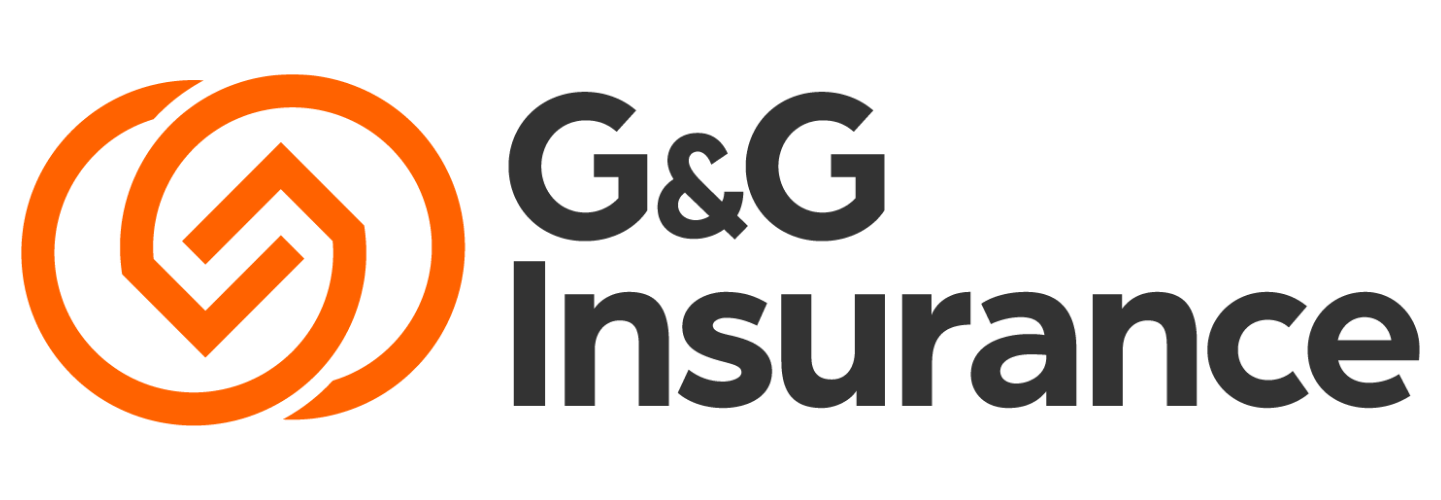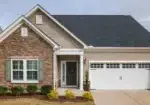Go through all of your belongings, big and small, to determine your coverage needs before getting a home insurance quote. In the event of a claim, you'll be able to quickly determine what is missing and calculate its value.
What is Home Insurance?
 Home insurance is a policy that protects your home from various forms of damage. But if you're in the market for home insurance coverage, you know it's a little bit more complex than that. Policies can be overwhelming to understand, and comparing coverage and rates can easily set your head spinning.
Home insurance is a policy that protects your home from various forms of damage. But if you're in the market for home insurance coverage, you know it's a little bit more complex than that. Policies can be overwhelming to understand, and comparing coverage and rates can easily set your head spinning.
If you’re not using an independent agent like G&G it can be hard, if not impossible to tell the difference between two home insurance policies.
Whether you own or rent, insuring the place you call home can help protect you financially if you suffer a loss due to fire, theft, vandalism, or other covered events. It will also cover you in the event someone is injured while on your property and wins a legal judgment against you.
Home insurance policies differ by which losses are covered, which coverages you choose, and what type of residence you own. You choose which policy is best for you, whether it’s a comprehensive insurance policy that covers losses such as fire, hail, smoke, falling objects, vandalism, and theft of personal property, or whether it’s a policy that covers only specified losses.
What Does Home Insurance Cover?
These are some common insurance coverage options you typically see on a policy:
Dwelling
Specialty dwelling insurance is the part of your policy that covers the main structure of your home. This insurance covers the cost to replace your home which can vary over time based on the cost of raw materials and labor, as well as supply and demand.
We’ll run a replacement cost analysis on your home to see how much it would cost if the worst happened and you had to rebuild.
Other Structures
This covers any structure on your property that is not permanently attached to your house, like fencing, driveways, sidewalks, and detached buildings like sheds and garages. Usually, this coverage is 10% of whatever your Dwelling limit is but can be increased if you need more coverage.
Personal Property
This covers all of your personal belongings like clothing, furniture, electronics, and appliances. Anything that would fall out of your house if you turned it upside down and shook out the contents.
Loss of Use
This covers your living expenses if you need to live somewhere else temporarily because your primary home is uninhabitable due to a loss.
Medical Expense
This covers medical expenses for guests if they are injured on your property, and in certain cases covers people who are injured off of your property. It does not cover health care costs for you or other members of your household.
Family/Personal Liability
Personal Liability Coverage applies if someone is injured or their property is damaged and you are to blame. The coverage generally applies anywhere in the world. When choosing your liability coverage limits, consider things like how much money you make and the assets you own. Your personal liability coverage should be high enough to protect your assets if you are sued. In some situations, an Umbrella policy may be necessary to provide extra coverage.
Scheduled Personal Property
There are some situations where you might want special coverage for valuables, or collectibles like jewelry, guns, collectibles, rugs, etc..
What is Not Covered by Home Insurance?
There are always exclusions in what home insurance will cover — which is another reason why it's important to understand how to read your homeowners policy. The below perils are commonly excluded are home insurance coverage, but could be amended by adding a policy endorsement.
- Ice and water damage to foundations or pavements
- Theft while the home is under construction
- Pets, other animals, and pests
- Defective construction or design
- Freezing pipes in vacant homes
- Settling or normal wear and tear
- Pollution, corrosion, or damage from industrial smoke
- Government and association actions
Whether you have an open peril or named peril policy, damage from the below are never covered by home insurance:
- Earthquakes (insurance options for earthquakes can be sold separately though)
- Flooding (flood insurance is a great option though)
- Enforcement of building codes
- Neglect
- Power failures
- Nuclear hazard
- Intentional acts
Tips and Advice
Take a home inventory of all your items
Double-check your homeowners policy for any policy discounts
While discounts vary per insurance company, typical home insurance discounts include multi-policy (home and auto), new roof, claims-free, non-smoker, and new home discounts. Look closely at your policy to see if you qualify for any possible discounts.
Update your homeowners policy after making major purchases
Pay attention to coverage limits for specific items. If you purchase a new item that exceeds your policy’s limit, you run the risk of having insufficient coverage. Consider additional endorsements and floaters with any newly purchased high-value item.
Maintain your home
Insurance companies see things like old roofs, mold, and general disrepair as liabilities and will charge you accordingly for them. It is important to maintain the structural integrity of your home to ensure your premiums don’t increase unnecessarily.
How Much Home Insurance Do I Need?
 Your homeowners insurance needs are unique, but answering a few key questions can help you determine the right amount of coverage for your situation — and give you a more accurate estimate when it’s time to shop for a policy.
Your homeowners insurance needs are unique, but answering a few key questions can help you determine the right amount of coverage for your situation — and give you a more accurate estimate when it’s time to shop for a policy.
Think of the following questions as a home insurance calculator to guide you toward the appropriate coverage levels:
-
What would it cost to rebuild my home, including detached structures, at today’s labor and material prices?
-
How much would it cost to replace all of my personal belongings?
-
What is the value of my financial assets if someone were to sue me?
These questions address the three core components of a homeowners insurance policy: dwelling coverage, personal property coverage, and liability protection.
If you're just starting your research or want a deeper understanding of how home insurance works, check out our complete guide to home insurance for a full overview of policies, coverages, and tips for choosing the right plan.
Understanding Replacement Cost vs. Market Value
When determining how much coverage you need, it's important to know that replacement cost and market value are not the same.
-
Replacement cost is what your insurance provider uses to estimate how much it would cost to rebuild your home from the ground up, using current materials and labor rates.
-
Market value, on the other hand, reflects your home’s real estate value — which can fluctuate based on location, housing demand, and other factors.
Because insurance exists to help you restore your home and belongings, insurers rely on replacement cost to determine appropriate coverage — not the real estate market.
Most insurers will help calculate this through tools or a home inspection, but having a ballpark figure in mind will help you compare quotes more effectively.
Don’t Forget Personal Property and Valuables
When estimating how much personal property coverage you need, conduct a home inventory to log the value of your belongings — from furniture and appliances to electronics, jewelry, and collectibles.
Some high-value items have sub-limits (like jewelry, firearms, and fine art), meaning the default policy may not fully cover their worth. In those cases, you can add extra protection with endorsements, also known as riders or floaters.
Knowing what to expect when filing a home insurance claim can also help you prepare ahead of time and make sure your coverage aligns with your potential risks.
Liability Coverage: Protecting Your Assets
Your personal liability coverage protects you financially if someone is injured on your property or sues you for damages. To ensure you're adequately protected, a good rule of thumb is to carry a liability limit equal to or greater than your net worth.
Why? If you're found liable for damages and your insurance coverage is exhausted, you could be held personally responsible — which may include the seizure of assets, savings, or income.
Key Takeaways
-
Use replacement cost, not market value, when estimating home coverage.
-
Conduct a home inventory to estimate personal property coverage needs.
-
Add riders for valuables that exceed standard sub-limits.
-
Ensure your liability limit is high enough to fully protect your assets.
If you’re unsure about your coverage needs, our team at G&G Independent Insurance can help assess your situation and walk you through the right policy options — so you're protected without overpaying.
Home Insurance FAQs
1. What does homeowners insurance cover?
Answer:
Homeowners insurance typically protects your home structure, personal belongings, and liability in case someone is injured on your property. Coverage can also include temporary living expenses if your home becomes uninhabitable.
2. How are home insurance rates calculated?
Answer:
Rates depend on your home’s value, location, construction type, age, and the coverage amount. Security features and a good claims history can also lower your premium.
3. Do I need insurance for natural disasters?
Answer:
Standard homeowners insurance covers events like fire or theft but usually excludes floods or earthquakes. Additional policies or endorsements can cover these risks for comprehensive protection.
4. Can I bundle home and auto insurance?
Answer:
Absolutely! Bundling home and auto insurance often qualifies you for discounts, saving you money while simplifying your coverage. G&G Independent Insurance can compare multiple carriers to maximize your savings.
5. How do I file a home insurance claim?
Answer:
Contact your insurance company promptly with photos, documentation, and a detailed description of damages. Early reporting helps speed up claim approval and ensures your home is repaired efficiently.
Common Home Insurance Coverage Limits
Dwelling: Varies
Other Structures: 10% of Dwelling Coverage
Personal Property: 50% of Dwelling Coverage Limit
Loss of Use: 20% of Dwelling Coverage Limit
Medical Payments: Varies
Personal Liability: Varies
Insurance Deductibles: What You Need to Know
There are some key differences between car and home insurance deductibles. With homeowners insurance, your deductible is subtracted from your total claim payout. For example, if your kitchen suffers $5,000 in damages from a fire and you have a $1,000 deductible, your insurance would cover $4,000 — and you'd be responsible for the remaining $1,000.
Both car and home insurance deductibles are inversely related to your premium — meaning the higher your deductible, the lower your monthly cost may be. Finding the right balance between affordability and protection is essential.
Ready to Find the Right Coverage and Save?
At G&G Independent Insurance, we’re committed to helping you get the most value from your insurance. Whether you're looking for nationwide coverage or state-specific options, like homeowners insurance in Arkansas, we’ve got you covered.
Contact us today to review your home and auto insurance deductibles, explore bundling options, and discover ways to save. A simple change to your deductible could lead to significant monthly savings — and our experts are here to guide you every step of the way.
Areas We Serve
Oklahoma
Tennessee











